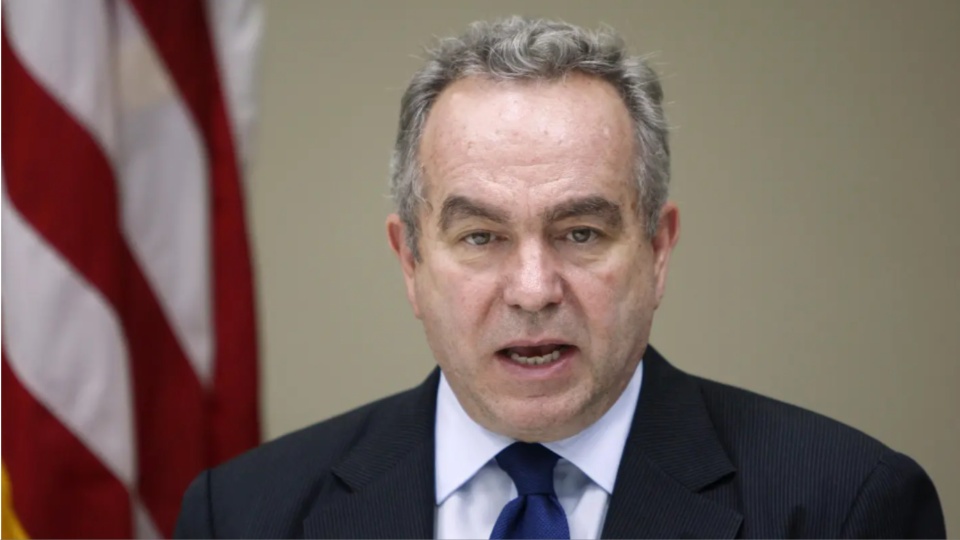
President Joe Biden has tapped Kurt Campbell, his administration’s National Security Council Asia coordinator, for Deputy Secretary of State. If the Senate confirms Campbell, he’ll be the latest in a line of American officials who are supposed to serve as diplomats but instead wage war backed by arms dealers and fossil fuel companies.
The concerns about Biden’s cabinet being filled with individuals with ties to the military-industrial complex, such as Lloyd Austin and Antony Blinken, are further emphasized by the inclusion of Campbell. His background reveals a history of strategic thinking in the realm of warfare and a particular focus on developing strategies concerning China. In 2007, Campbell co-founded the Center for a New American Security (CNAS) alongside Michele Flournoy.
The CNAS, being a think tank with a notable influence on defense and foreign policy, becomes a focal point for criticism due to its association with influential arms manufacturers and financial giants. CNAS’ donor list, featuring prominent names in international arms trafficking, such as Lockheed Martin and Northrop Grumman, raises questions about potential conflicts of interest and the influence of the military-industrial complex on policy decisions.
Additionally, financial support from major corporations like JP Morgan Chase and Exxon Mobil adds another layer of concern, suggesting a convergence of interests between the defense sector and powerful economic entities.
The fact that CNAS actively advocated for the continuation of the U.S. war in Iraq during the Obama administration is a prime example of how the individuals and institutions within the military-industrial complex wield significant influence over policy decisions.
Furthermore, anyone invested in the idea of diplomacy should be greatly concerned about the revelation that CNAS regularly conducts war game simulations involving the U.S. and China. These war games imply a focus on preparing for potential conflicts, raising concerns about the direction of U.S. foreign policy, particularly in relation to China.
Campbell’s influence on U.S. foreign policy, particularly in relation to Asia and the Pacific, has been substantial, dating back to his role as Obama’s assistant secretary of state for Asia and Pacific affairs in 2009. During this time, he crafted the “pivot to Asia,” a strategic initiative designed to enhance U.S. dominance in the region with a specific focus on countering China.
The pivot involved a multifaceted approach, including increased troop deployments, establishment of military bases in key locations such as Australia, the Philippines, and Guam, and the deployment of U.S. warships into the South China Sea. Additionally, the initiative endorsed Japan’s re-militarization, signaling a concerted effort to strengthen alliances and project military power in the region.
Upon joining the Biden administration, Campbell continued to advocate for policies aimed at containing China. His emphasis on expanding military alliances suggests a commitment to building a coalition of nations aligned against “Chinese influence.” Campbell’s stance on punishing China for non-compliance with U.S. hegemony underscores the confrontational nature of his approach and raises questions about the potential for increased tensions between the two global powers.
Furthermore, Campbell’s call for the development and deployment of more advanced military capabilities, including long-range ballistic missiles, guided-missile submarines, and high-speed strike weapons, signals a commitment to bolstering the U.S. military presence in the region. These technologies are not only indicative of a more aggressive military posture but also underscore a focus on strategic capabilities aimed directly at Beijing. The emphasis on precision-strike capabilities and undersea warfare highlights a desire to counter China’s military advancements and establish a credible deterrent.
Empowered at the State Department, Campbell’s policies would spell disaster for communities in the Asia-Pacific facing repression and human rights abuses linked to U.S. militarism. His appointment would also increase the likelihood of violent confrontation with China. We must re-establish diplomacy and continue to demand peace by calling out these warmongers in the State Department disguised as diplomats.
Both major parties in the United States clamor for war with China, and without rational and peace-driven advocates in our State Department, they are setting the stage for such war. Campbell does not serve the needs and desires of people and the planet but rather the greed of the war economy.
It’s time to get serious about peace and reject walking into another war—we must reject a State Department run by warmongers. We must reject Biden’s nomination of Kurt Campbell as the new Deputy Secretary of State.
As with all op-eds published by People’s World, the views reflected here are those of the authors.
We hope you appreciated this article. At People’s World, we believe news and information should be free and accessible to all, but we need your help. Our journalism is free of corporate influence and paywalls because we are totally reader-supported. Only you, our readers and supporters, make this possible. If you enjoy reading People’s World and the stories we bring you, please support our work by donating or becoming a monthly sustainer today. Thank you!













Comments